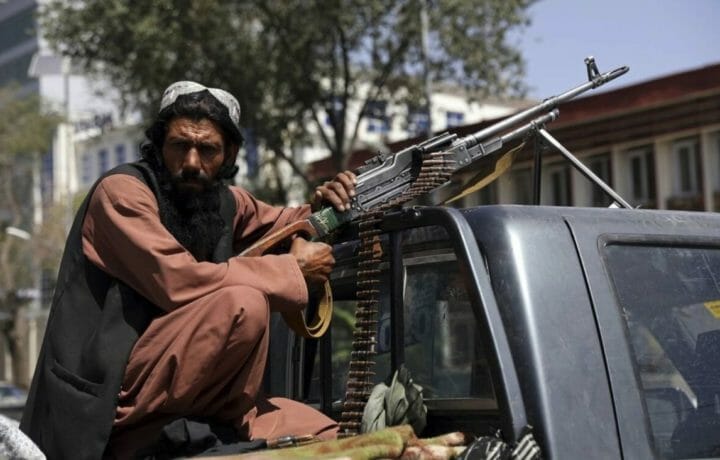One of the pipe dreams the international diplomatic community has held for a number of years is that the Taliban has changed its core values since it began actively negotiating with Western nations. Nearly two months into the new reign of fear by the Taliban terrorist network in Kabul, that myth has been exposed in many ways.
No School for Half the Population
It has now been 26 days since the Taliban banned girls from secondary education. They continue to stop women teachers from performing their full duties as well. World leaders and Afghans continue to press the Taliban to fully restart education for females, but the Taliban are trying to use this human rights violation as a leverage point to gain international recognition of their illegal assumption of power in Kabul. Some girls have been lucky enough to have access to online teaching and others have seen the return of hidden classrooms, like those necessary under the previous Taliban regime.
No Amnesty for Security Sector
As the Taliban/Haqqani regime sorted out its cabinet duties they made promises to the world that they would not hunt down former Islamic Republic government members for retribution. While the most visible and senior people have mostly been safe, many others have not. Especially at-risk are members of the Afghan special operations community. They and their families are being hunted down door-to-door for torture and murder without cause. This follows the ongoing public hunt for former Afghan military pilots and their families. Additionally, the members of the court have been targeted for retribution. The judges and prosecutors that once jailed Taliban members and other terrorists are now being hunted by the freed criminals they put away. Another heavily targeted group of Afghans are the former interpreters that supported the US and other nations, and the families of Afghan-American U.S. servicemembers that still live in Afghanistan. There are hundreds of thousands of at-risk Afghans in the security sector alone.
No Safety for Minorities and No Fighting Against Terrorists
The world saw the latest mass-terrorism attack occur in Afghanistan during the October 8 suicide bombing of a Shia Mosque in Kunduz killing over 100 people and disfiguring more. This attack is believed to have been done by the Islamic State-Khorasan (IS-K), and they have claimed responsibility. As reports throughout the last few years have shown that there has been no split in the relations between the Taliban, Haqqani, and Al Qaeda terrorist groups, the likelihood of terrorist events decreasing in Afghanistan is not high.
In other parts of the country, the Shia (mostly Hazara) and other non-Sunni Muslim religious groups have been targeted with disappearances, attacks, torture, and forced displacement. Amnesty International is tracking the slowly unfolding, possibly genocidally-intended, murders. In August “Taliban forces unlawfully killed 13 ethnic Hazaras, including a 17-year-old girl, in Afghanistan’s Daykundi province.” In this case there was a connection between the surrender of the victims (some former Afghan security forces) to the Taliban, but this is not the reason for most of the persecution and violent focus on the non-Hanafi Sunni Afghan minorities.
Last week, the UN Human Rights Council in Geneva adopted a resolution to install a special rapporteur for human rights. This person and their team of experts will not be installed in Afghanistan until next March, by which time many thousands of abuses will have taken place. Of course, Pakistan’s “Iron Brother” China fought other UN nations vigorously to not install any human rights monitoring body in Afghanistan as they seek to exploit the nations resources and continue to support the Pakistani-backed proxy force of terrorists sitting in Kabul’s palaces and government buildings.
Human rights under the Taliban regime have been stained by atrocities in the past and so far, no indication of change has been seen.




